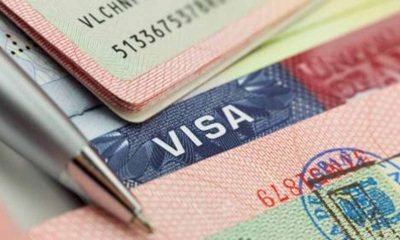The Federal Airports Authority of Nigeria (FAAN) has reiterated the importance of strict adherence to airport and airline regulations, warning passengers to comply with established safety protocols to ensure the security, comfort, and smooth operations of all airport activities.
In a statement issued this week, FAAN urged travellers to familiarise themselves with the Passengers’ Rights and Responsibilities and the Airlines’ Obligations as published by the Nigeria Civil Aviation Authority (NCAA), alongside the FAAN Bye Laws. The reminder comes in the wake of a viral video showing a confrontation involving a female passenger—identified as Comfort Emmanson (also known as Comfort Bob)—an Ibom Air hostess, and airport security officials.
According to Ibom Air, the incident occurred on Sunday, August 10, during its Uyo–Lagos flight. The airline said the passenger’s behaviour posed “a serious threat to the safety of crew, passengers, and the aircraft.” The conflict reportedly began when crew members instructed Ms. Emmanson to switch off her mobile phone in line with standard aviation safety procedures. She allegedly refused until the Pilot-in-Command made a further announcement, after which a fellow passenger beside her switched off the phone. This led to a heated altercation.
Authorities later detained Ms. Emmanson and charged her to court. She has not yet made a public statement regarding the incident.
In its reaction, FAAN condemned the behaviour, stating:
“The Federal Airports Authority of Nigeria (FAAN) don note wit concern di increasing frequency of unruly behaviour by some passengers at our airports. We wish to categorically state say dat kain behaviour dey entirely unacceptable within di framework of civil aviation and no go dey tolerated.”
FAAN added that its Aviation Security (AVSEC) team had intervened and handed Ms. Emmanson over to the Nigerian Police Force for further investigation and prosecution. The agency also confirmed it is reviewing protocols for restraining and prosecuting passengers in line with the Airport Approved Security Programme and applicable laws.
The Minister of Aviation and Aerospace Development, Festus Keyamo, also condemned the act, revealing that the police arraigned Ms. Emmanson at the Ikeja Magistrates’ Court on Monday morning. She has been remanded at Kirikiri Prisons after failing to provide sufficient sureties for bail.
Rules for Passengers According to NCAA Regulations
The NCAA’s regulations outline specific offences for air travellers, including:
-
Smoking inside an aircraft or in designated non-smoking areas.
-
Using mobile phones or electronic devices in-flight without the approval of the aircraft commander.
-
Fighting, disorderly conduct, or behaviour constituting a nuisance to other passengers.
-
Disobeying lawful instructions from the aircraft commander, crew, check-in staff, or security officers.
-
Engaging in acts that endanger or could endanger flight safety.
-
Tampering with smoke detectors or other aircraft equipment.
-
Carrying weapons or prohibited items without authorisation.
-
Entering restricted areas without proper security clearance.
-
Taking photos or videos in restricted airport areas.
-
Transporting prohibited items such as sharp objects, flammable liquids, or certain electronics.
The law empowers the aircraft commander or airport authority to restrain and prosecute passengers who engage in disruptive behaviour on board or in airport terminals.
Offences and Penalties
Under NCAA guidelines, violations can attract heavy penalties, including:
-
Maximum civil penalties for operating electronic devices against crew directives, drinking unserved alcoholic beverages, interfering with crew, or smoking in restricted areas.
-
Minimum to maximum civil penalties—and possible criminal prosecution—for physical assault, threats, or actions posing imminent danger to flight safety.
-
Moderate to maximum penalties for refusing to fasten seat belts when required.
-
Criminal referrals for tampering with smoke detectors or assaulting individuals on board.
Minister Keyamo stressed that passengers with genuine grievances should use established legal channels to address complaints rather than taking matters into their own hands, as doing otherwise can have serious consequences.














